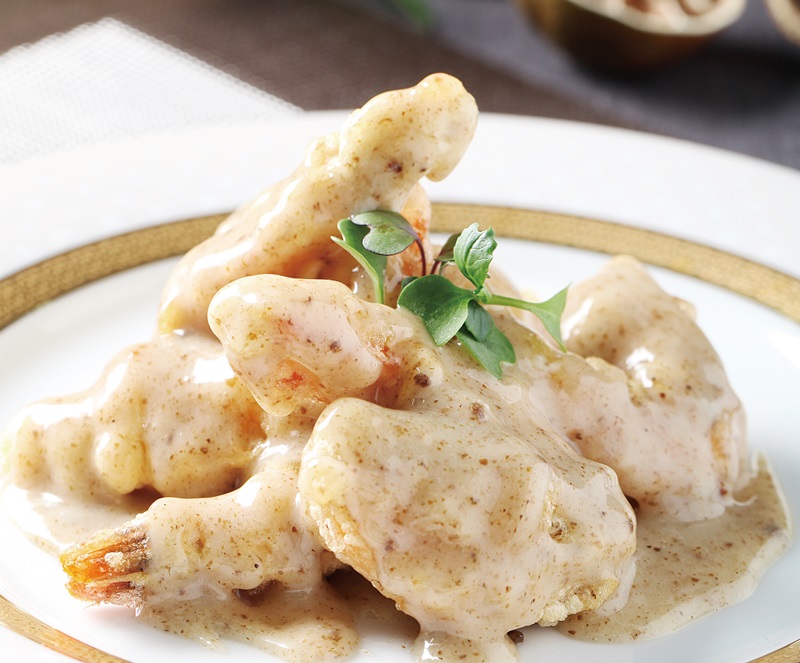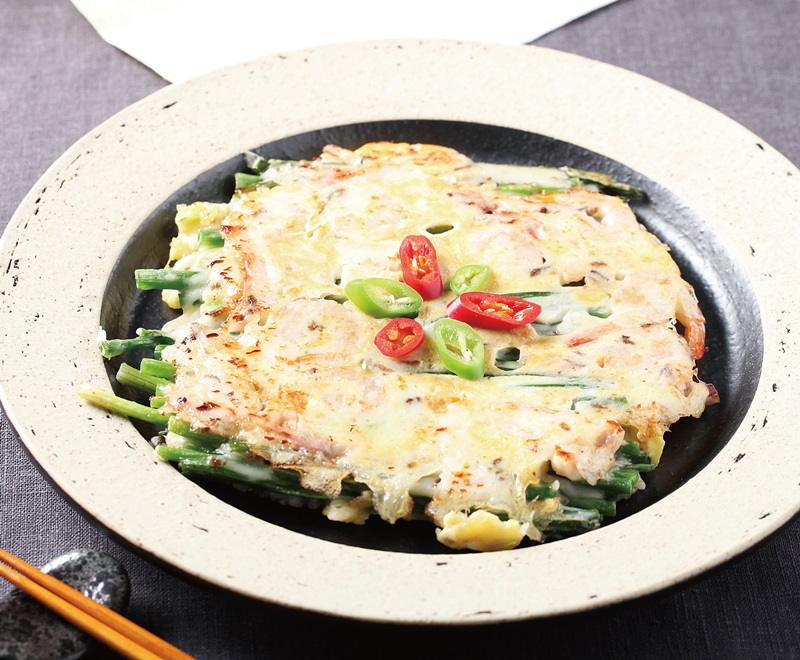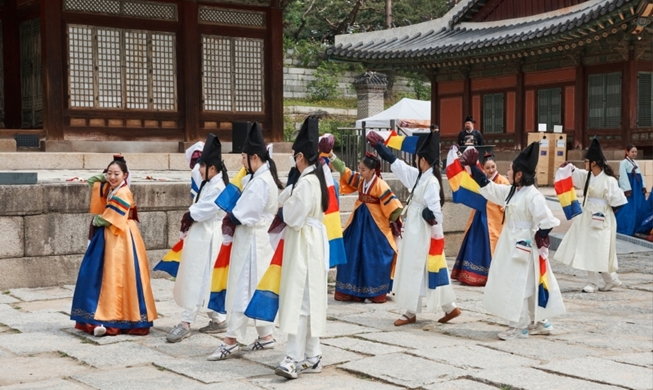-
 Korea.net's 24-hour YouTube channel
Korea.net's 24-hour YouTube channel- NEWS FOCUS
- ABOUT KOREA
- EVENTS
- RESOURCES
- GOVERNMENT
- ABOUT US

This is lemon cream shrimp shown in a book published in 2016 by the Rural Development Administration's National Institute of Agricultural Sciences to promote startups for edible insects. The shrimp here is made from ground mealworms.
By Lee Jihae
Photos = Rural Development Administration's National Institute of Agricultural Sciences
In "Snowpiercer" (2014), people rely on protein bars made of insects as their only source of protein in a world frozen because of climate aberration. In "Papillon" (1973), a prison inmate eats cockroaches to survive after the warden halves rations.
Movies often depict dining on insects as a desperate act of survival, yet people eating such critters is hardly restricted to the cinematic realm. Skewered scorpions and fried centipedes are sold on the streets of Southeast Asian countries, and beondegi (steamed pupae) is a traditional snack in Korea.
In 2013, the United Nations Food and Agriculture Organization designated insects as a sustainable food source, and a growing movement worldwide seeks to popularize cuisines highlighting them.
Insects have protein content of 50%-80%, higher than the 20%-30% of other livestock. They also emit a third to 1/7th of the greenhouse gases given off by other livestock, and their feces cause little environmental pollution. Insects also require far less food and water and a short raising term of two to four months.
The Ministry of Agriculture, Food and Rural Affairs on July 25 categorized select insects as livestock and is trying to foster the edible insect industry by providing tax breaks to insect farms.
Koreans have consumed pupae and grasshoppers as food but this is the first time for the government to designate insects as livestock. The official government category for edible insects consists of seven types including beetles and gryllus bimaculatus, a type of cricket.
The Rural Development Administration (RDA) held contests in 2015 and 2016 to come up with names to make bugs sound more appealing and edible to the masses. As a result, darkling beetles are called gosoae, ("goso" in Korean means the smell of something tasty; the insect is known as "mealworm" in English), and cicada larva is called ggotbaengi ("ggot" means flower in Korean).
Though not yet prevalent, foods featuring insects as key ingredients such as insect sundae (blood sausage) and noodles have been launched. Bio Jin Corp. and the municipal government of Cheongju, Chungcheongbuk-do Province, jointly developed insect sundae and gained a patent for it in July 2014. The first restaurant to serve this dish was opened in 2016 and the fifth last year.
Bio Jin CEO Park Nam-gyu said he decided to make insect sundae because of his attempts to make healthy food. "Pig oil has much saturated fat so I used ground insect powder in sundae instead. Some of our customers are fans of the dish, saying it's light and tasty," he said.
The health benefits of edible insects are also drawing interest. The RDA and Gangnam Severance Hospital in Seoul announced on July 17 that long-term consumption of mealworms improves nutrition and enhances the human immune system, based on their joint study of 109 pancreaticobiliary and liver cancer patients. Patients who consumed ground mealworms were found to recover from surgery faster thanks to improved immune systems.

Seafood-scallion pancake made of ground mealworm
On the prospects of the edible insect industry, the Food Ministry cited a study by Seoul National University last year predicting the growth of the sector's value from KRW 43 billion in 2018 to KRW 99.2 billion in 2030.
A ministry official said, "We will continue our efforts to improve the public perception of edible insects and expand health food made from them."
jihlee08@korea.kr













